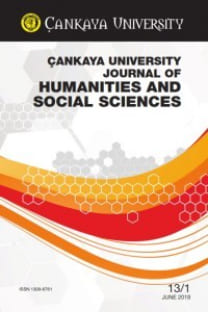Epistolography of the Repressed: Writer/Iwaszkiewicz, Reader/Karpowicz
This article focuses on the epistolography as a space of free expression for the repressed queer identities. Through the example of Jarosław Iwaszkiewicz’s letters to Jerzy Błeszyński, the paper renders affects, emotions and facts that could not have been said in the officially published works of Iwaszkiewicz. After the interpretation of the letters in the optics of minority writing, this study leads to the importance of modern affective lectures for literary interpretation. The author analyzes similar motives in Iwaszkiewicz’s letters and contemporary Ignacy Karpowicz’s Miłość, and shows the results of this reparative reading’s attempt, using the tools and methods provided by minority studies, queer critic, and works on historical and contemporary epistolography. By using these texts and discourses, the paper aims to give the answer to the role of reading epistolography as a changing process in literary history.
Anahtar Kelimeler:
Iwaszkiewicz, Karpowicz, epistolografi, baskı, baskı, eşcinsellik
Epistolography of the Repressed: Writer/Iwaszkiewicz, Reader/Karpowicz
This article focuses on the epistolography as a space of free expression for the repressed queer identities. Through the example of Jarosław Iwaszkiewicz’s letters to Jerzy Błeszyński, the paper renders affects, emotions and facts that could not have been said in the officially published works of Iwaszkiewicz. After the interpretation of the letters in the optics of minority writing, this study leads to the importance of modern affective lectures for literary interpretation. The author analyzes similar motives in Iwaszkiewicz’s letters and contemporary Ignacy Karpowicz’s Miłość, and shows the results of this reparative reading’s attempt, using the tools and methods provided by minority studies, queer critic, and works on historical and contemporary epistolography. By using these texts and discourses, the paper aims to give the answer to the role of reading epistolography as a changing process in literary history.
Keywords:
queer, letters, Iwaszkiewicz, Karpowicz, epistolography, repression,
___
- Almasi, Gabor. „Humanistic Letter – Writing”. EGO, http://ieg-ego.eu/en/threads/european-networks/intellectual-and-academic-networks/gabor-almasi-humanistic-letter-writing#TheTheoryofLetterWriting.
- Całek, Anita. Nowa teoria listu. Kraków 2019, p. 53-83.
- Ceccarelli Paola; Doering, Lutz; Fögen, Thorsten; Gildenhard, Ingo. Letters and Communities: Studies in the Socio-Political Dimensions of Ancient Epistolography. Oxford University Press, 2018, p. 330.
- Czapliński, Przemysław. Ironia i absolut. „Dwutygodnik.com”, https://www.dwutygodnik.com/artykul/7591-ironia-i-absolut.html.
- Ewa Głębicka, „Rzecz prywatna, rzecz sekretna. O granicach intymności w korespondencji Marii Dąbrowskiej i Anny Kowalskiej z lat 1946-1948. Napis, 2017, p. 155-179.
- Ignacy Karpowicz: jestem nadzorcą obozu literatura, https://kultura.onet.pl/wywiady-i-artykuly/ignacy-karpowicz-jestem-nadzorca-obozu-literatura-wywiad/d88c2cw.
- Janion, Maria. Gdzie jest Lemańska?. Idem: Eadem: Kobiety i duch inności. Wydawnictwo Sic, 1996, p. 197.
- Karpowicz, Ignacy. “Miłość”. Wydawnictwo Literackie, 2017, p. 82.
- Kienzler, Iwona. Prowokatorka. Fascynujące życie Marii Dąbrowskiej. Bellona 2018, p. 20.
- Komornicka, Maria. Listy. Edited by Edward Boniecki. Muzeum Historyczne Warszawy, 2011.
- Kosofsky-Sedgwick, Eve. Touching Feeling: Affect, Pedagogy, Performativity. Duke University Press Books, 2003, p. 123-150.
- Król, Anna. Wszystko jak chcesz. O miłości Jarosława Iwaszkiewicza do Jerzego Błeszyńskiego. Wydawnictwo Wilk&Król, 2017.
- Marzec, Lucyna. „List”. Forum poetyki, Edition: Summer 2015, p. 95. Forum Poetyki, http://fp.amu.edu.pl/wpcontent/uploads/2015/07/Lucyna_Marzec_List_lato_2015.pdf.
- Massumi, Brian. „The Autonomy of Affect”. Cultural Critique. No. 31, The Politics of Systems and Environments, Part II (Autumn, 1995), pp. 83-109.
- Pekaniec, Anna. Autobiografie i epistolografia w perspektywie kulturowej teorii literatury. Idem: Polonistyka na początku XX wieku. Diagnozy, koncepcje, perspektywy. Vol. 1. Edited by Romuald Cudak, Karolina Pospiszil. Wydawnictwo Uniwersytetu Śląskiego, 2018, p. 256.
- Ritz, German. Jarosław Iwaszkiewicz: Pogranicza nowoczesności. Translated by Andrzej Kopacki. Universitas, 1994, p. 15-25.
- Spivak, Gayatri Chakravorty. Can Subaltern Speak? Reflections on the History of an Idea. Routlege, 2010.
- Stelingowska, Barbara. Doświadczenie ciała w tekstach poetyckich Marii Komornickiej. Idem: Supa, Wanda. W kręgu problemów antropologii literatury. W stronę antropologii niezwykłości, studia pod redakcją Wandy Supy. Wydawnictwo Uniwersytetu w Białymstoku, 2013, p. 123-134.
- Śmieja, Wojciech. Literatura, której nie ma. Szkice o polskiej literaturze homoseksualnej. Universitas, 2010, p. 87.
- Tomasik, Krzysztof. Homobiografie. Wydawnictwo Krytyki Politycznej, 2014, p. 31-35.
- ISSN: 1309-6761
- Yayın Aralığı: Yılda 2 Sayı
- Başlangıç: 2004
- Yayıncı: Çankaya Üniversitesi
Sayıdaki Diğer Makaleler
Hanif Kureishi’s The Last Word: The Art of Fictional Biography
Encarnación ALMAZÁN-RUİZ, Aroa ORREQUİA-BAREA
Henry James’in Önsöz Yazma Geleneği Üzerine
Epistolography of the Repressed: Writer/Iwaszkiewicz, Reader/Karpowicz
Decolonization of policy process and not the policy of decolonization
Henry James’s Prefatory Discourse as a Site for Innovation, Construction, and Instruction
